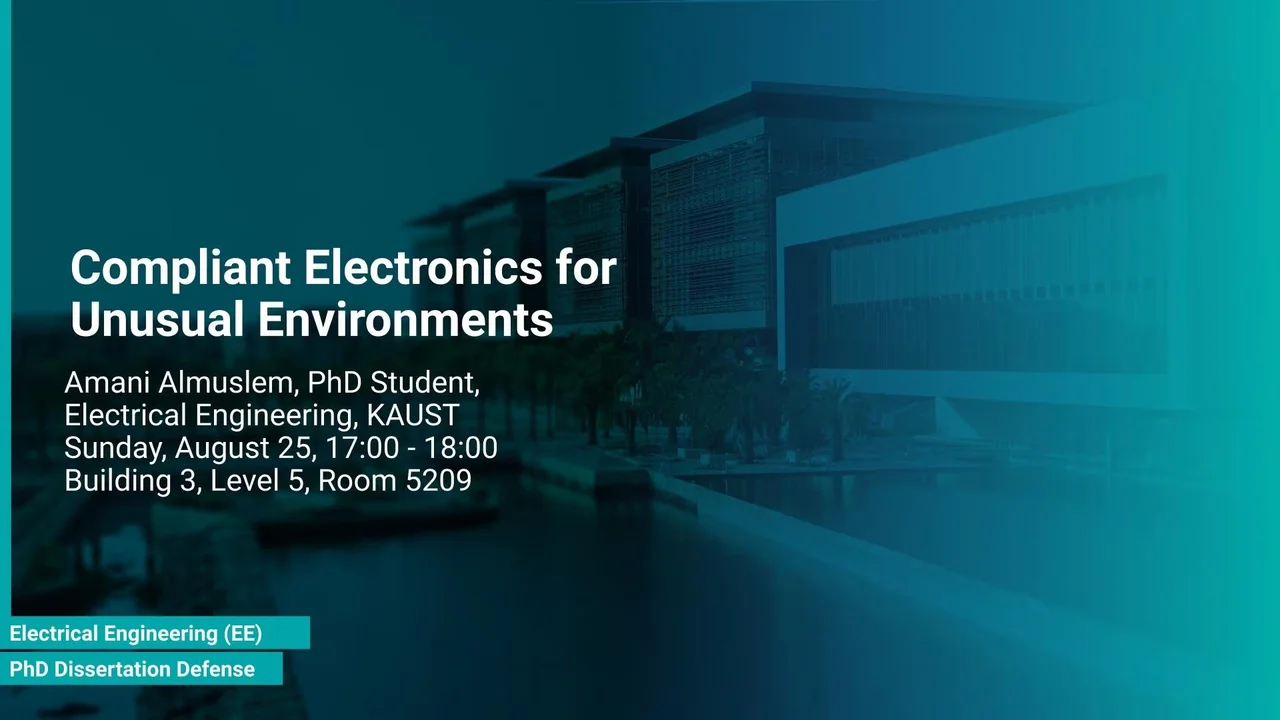
Compliant Electronics for Unusual Environments
Overview
Abstract
Compliant electronics are an emerging class of electronics which offer physical flexibility in their structure. Such mechanical flexibility opens up opportunities for wide ranging applications. Nonetheless, compliant electronics which can be functional in unusual environments are yet to be explored. Unusual environment can constitute a harsh environment where temperature and/or pressure is much higher or lower than the usual room temperature and/or pressure. Unusual environment can be an aquatic environment, such as ocean/sea/river/pond, industrial processing related liquid and bodily fluid environment, external or internal for implantable electronics.
Finally, unusual environment can also be conditions when extreme physical deformation is anomalously applied to compliant electronics in order to understand their performance and reliability under such extraordinary mechanical deformations. Therefore, in this thesis, three different aspects of compliant electronics are thoroughly studied, addressing challenges of material selection/optimization for unusual environment applications, focusing on electrical performance and mechanical flexible behavior. In the first part, performance of silicon-based high-performance complementary metal oxide semiconductor (CMOS) devices are studied under severe mechanical deformation. Next, a high-volume manufacturing compatible solution is offered to reduce the
usage of toxic chemicals in semiconductor device fabrication. To accomplish this, Germanium Dioxide (GeO2) is simultaneously used as transient material and dielectric layer to realize a dissolvable/bioresorbable transient electronic system which can be potentially used for implantable electronics. Finally, wide bandgap semiconductor Gallium Nitride is studied to understand its mechanical flexibility under high temperature conditions.
In summary, this research contributes to the advancement of material selection, optimization and process development towards achieving compliant and transient devices for novel applications in unusual environments.
Brief Biography
Amani S. Almuslem (MS, electrical engineering) is a doctoral candidate in electrical engineering at King Abdullah University of Science and Technology (KAUST), Saudi Arabia. She has two master's degrees, in physics from King Faisal University (KFU) in 2006 and in electrical engineering from KAUST in 2015. Before joining KAUST, she was a lecturer in physics at King Faisal University. Her Ph.D. research is about compliant electronics for unusual environments addressing challenges for material optimization focusing on the electrical performance and flexible mechanical behavior.